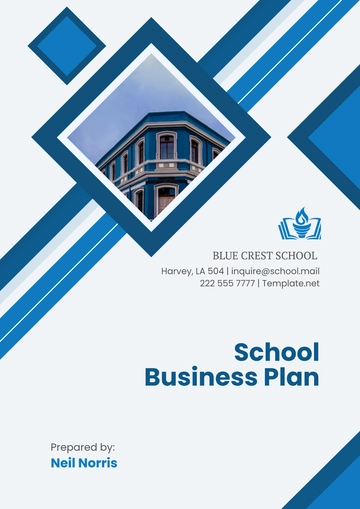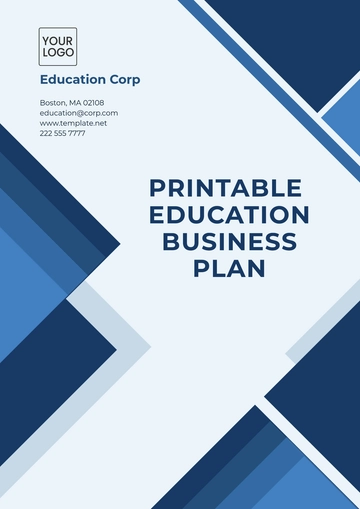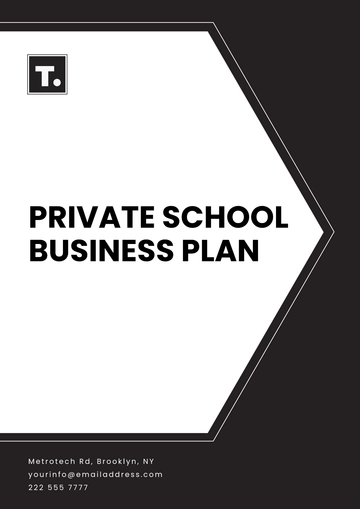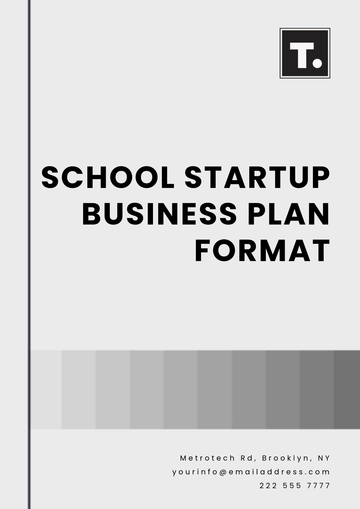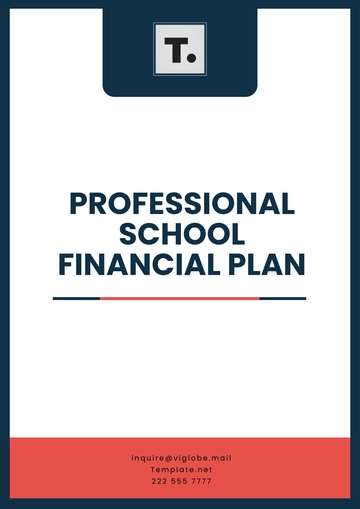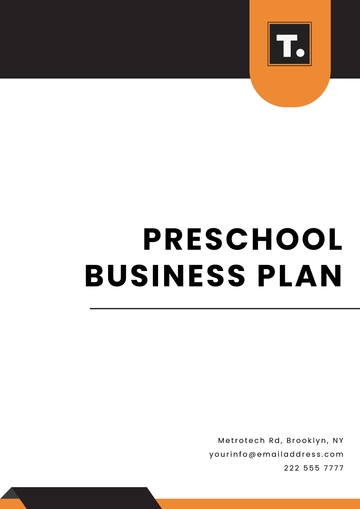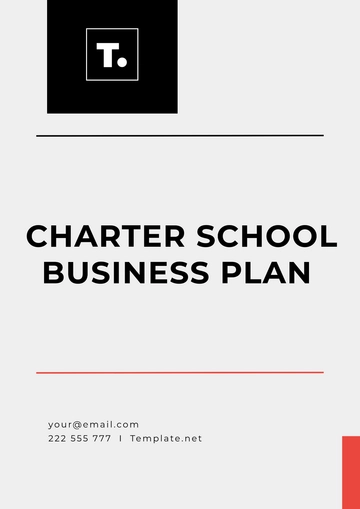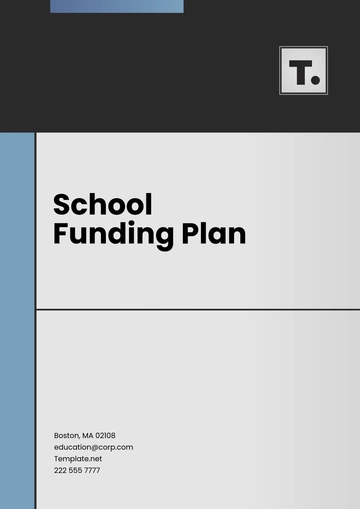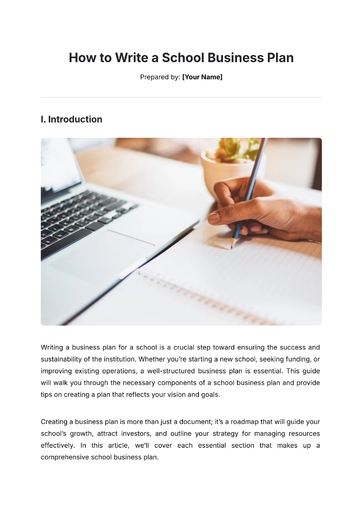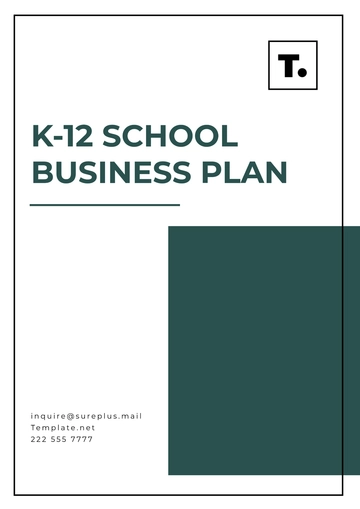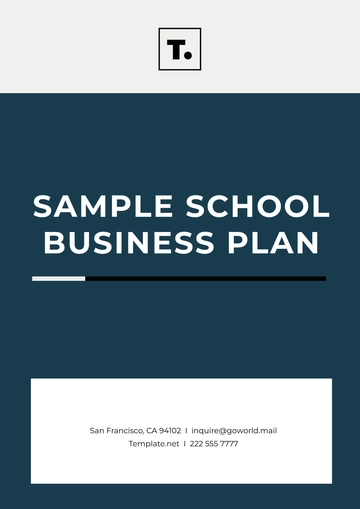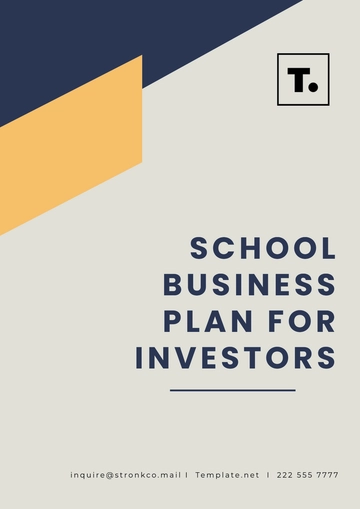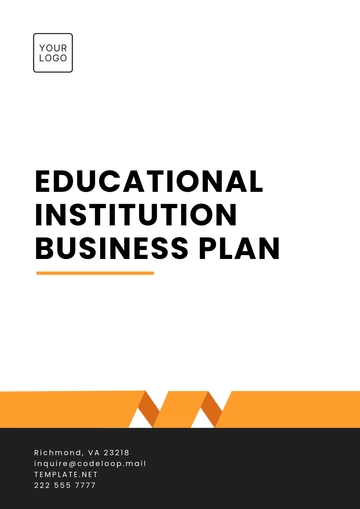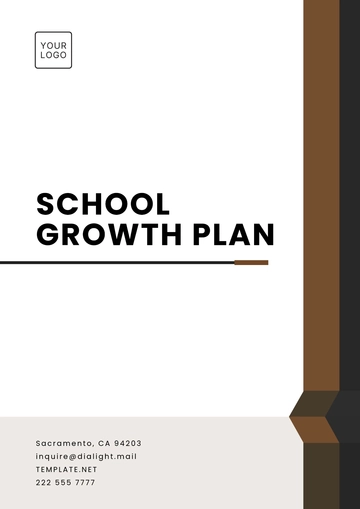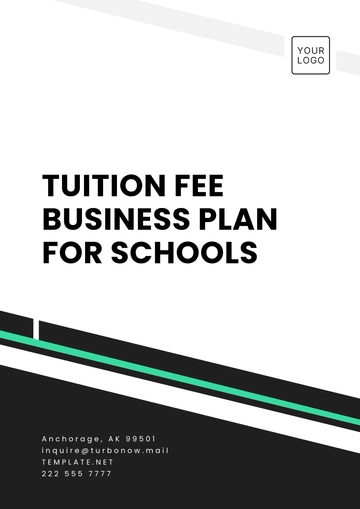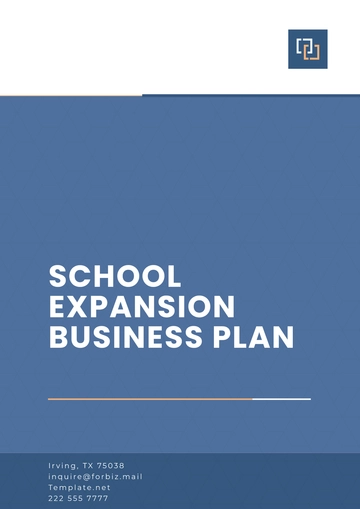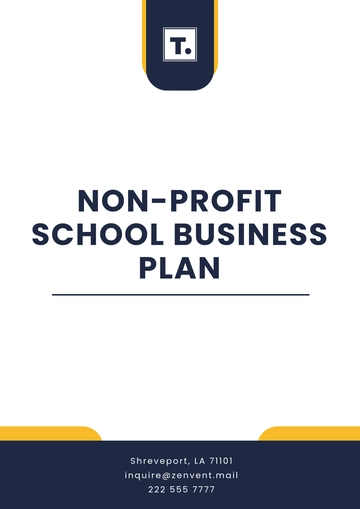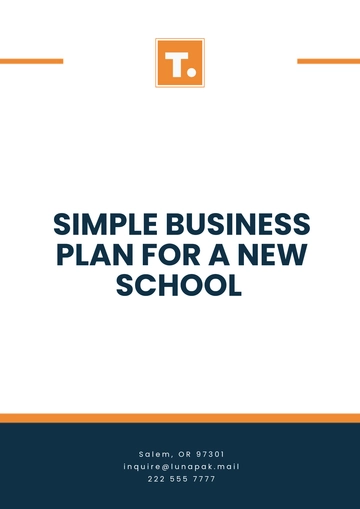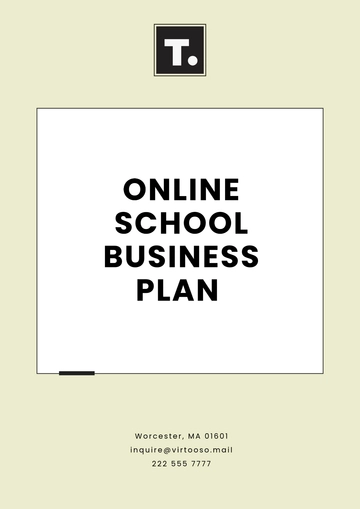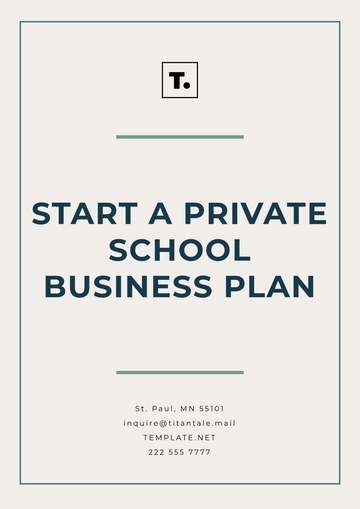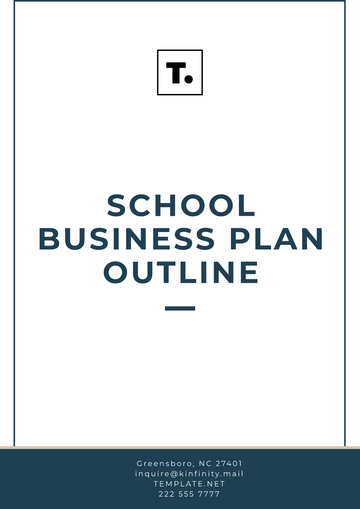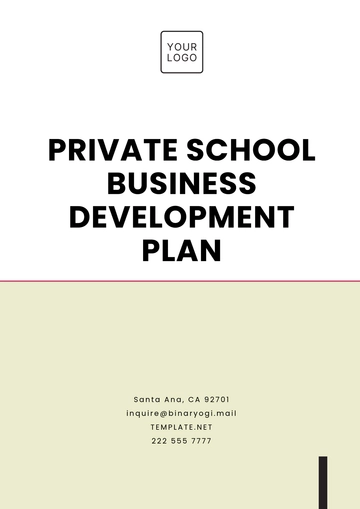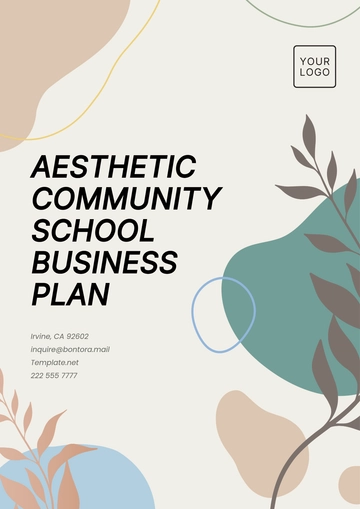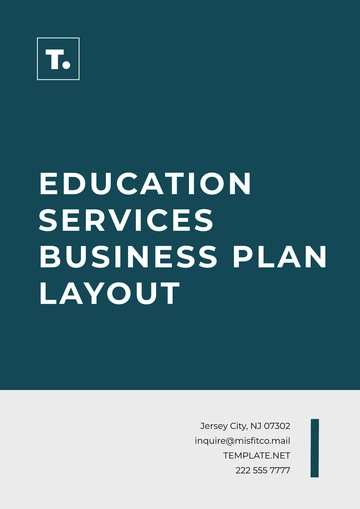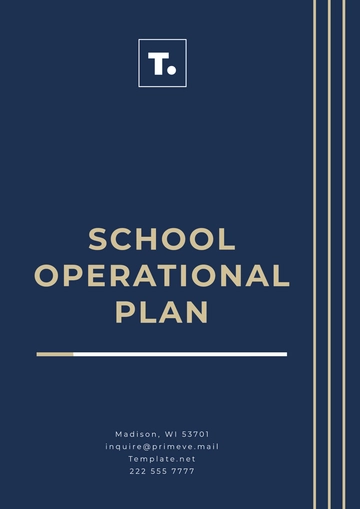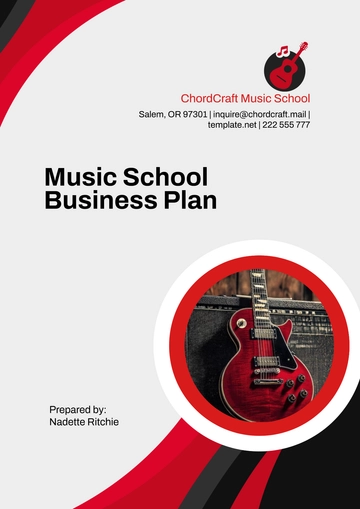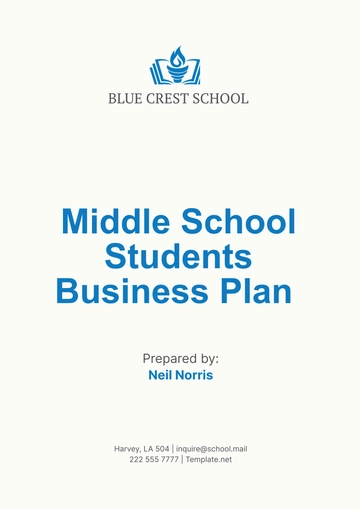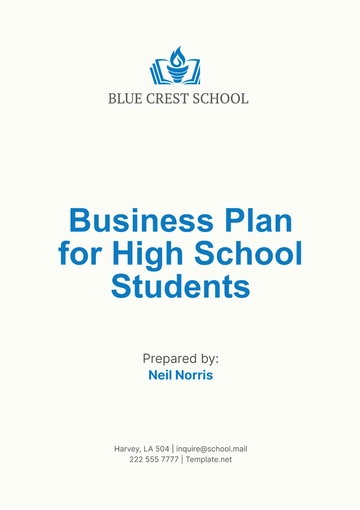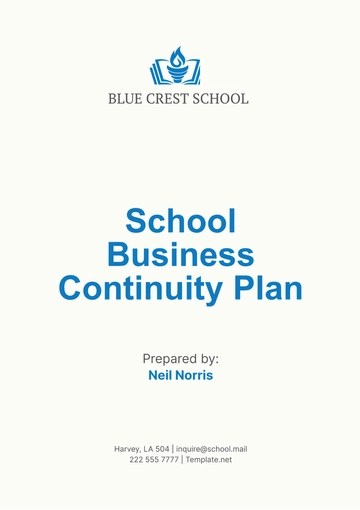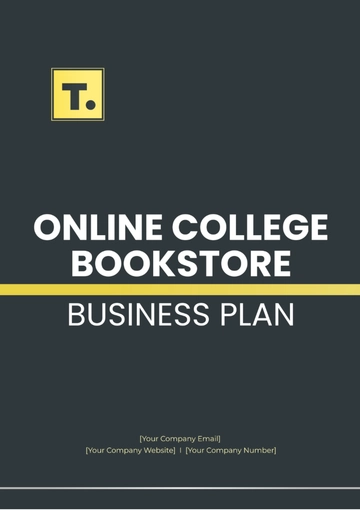Free Printable Education Business Plan
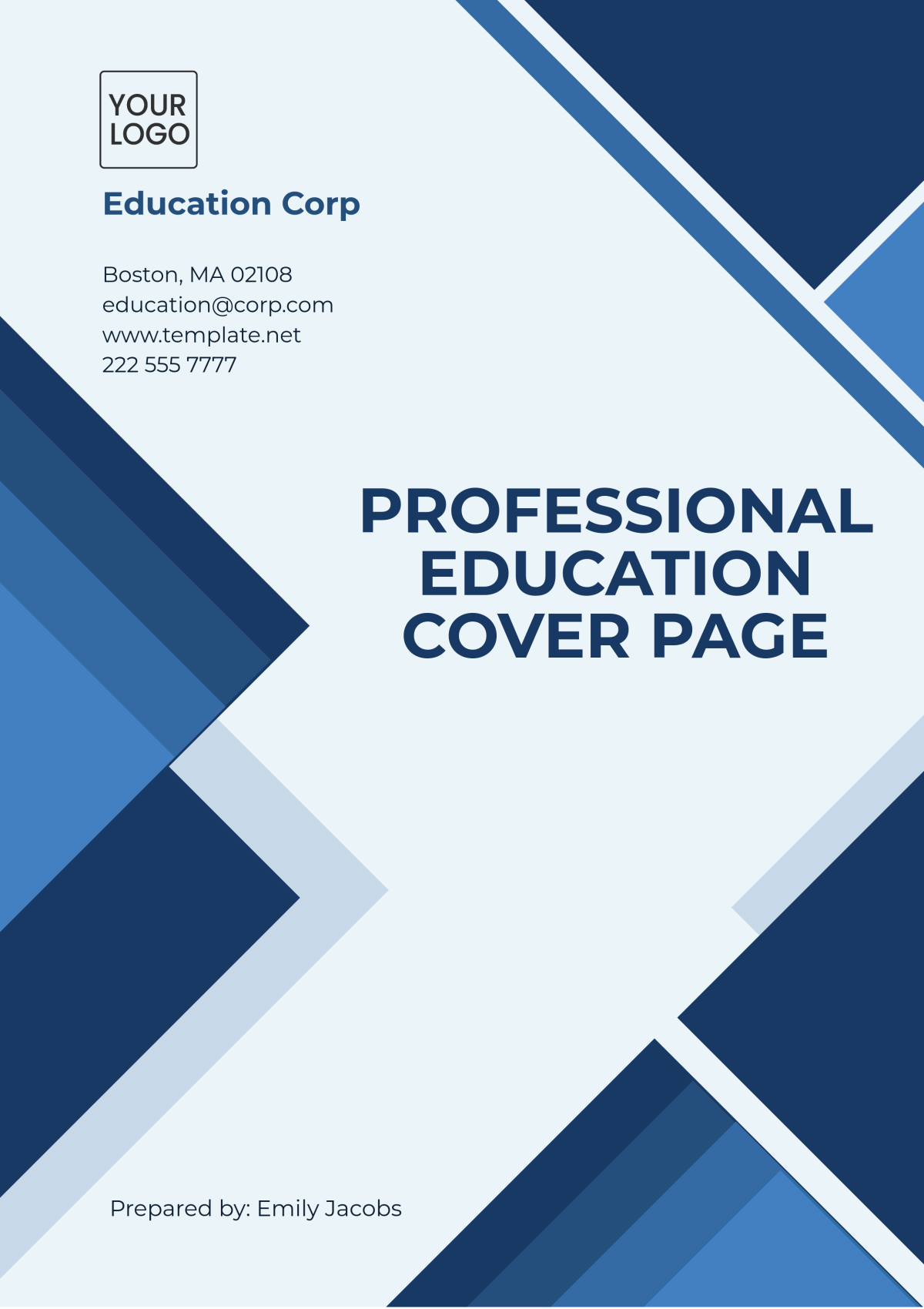
1. Executive Summary
Business Name: [Your Company Name]
Business Type: Hybrid (Online and In-Person) Education Platform
Mission Statement:
To inspire and equip the next generation with the skills, knowledge, and adaptability to thrive in the world of 2050 and beyond.
Location: San Francisco, California
Launch Date: June 1, 2050
Goals for 2050:
Launch the education platform and enroll 1,000 students by December 31, 2050.
Generate $1.2 million in revenue by the end of the first fiscal year.
Establish partnerships with 20 schools to integrate our platform by 2051.
2. Business Description
[Your Company Name] offers personalized, cutting-edge education to students aged 10–18. By combining traditional academic subjects with skills for emerging industries like AI, renewable energy, and ethical technology, the platform ensures students are prepared for a rapidly evolving world.
Key Features:
AI-powered learning for customized lesson plans and adaptive progress tracking.
Virtual Reality (VR) classrooms for immersive subject learning experiences.
A hybrid model of in-person and online education to meet diverse student needs.
3. Market Analysis
Target Market:
Students aged 10–18 in urban and suburban areas across North America.
Schools and educational institutions need technology-enhanced curricula.
Parents seeking progressive, future-ready educational solutions.
Market Trends (2050):
A global shift toward hybrid and online learning due to the flexibility and accessibility it provides.
Increasing demand for STEM and advanced technology education.
The rising popularity of immersive learning through VR and gamification.
Competitors:
Global platforms like Coursera for Kids and EduVerse.
Local hybrid learning academies.
Competitive Advantage:
Integration of AI and VR: Providing hyper-personalized and engaging learning experiences.
Future-Ready Curriculum: Addressing skills and knowledge gaps for future job markets.
4. Organization and Management
Ownership: [Your Company Name] is a privately owned venture founded by [Your Name], an education technology specialist with 20 years of experience in the industry.
Management Team:
Founder and CEO: [Your Name]
Visionary leader ensuring the alignment of strategy with market demands.Chief Technology Officer (CTO): [Name]
Oversees the development of the AI and VR platform.Director of Curriculum Development: [Name]
Designs and updates course offerings.
Staff:
15 certified educators (10 full-time, 5 part-time).
5 tech support staff for AI/VR tools.
5. Products and Services
1. AI-Personalized Learning:
Adaptive lesson plans based on each student’s performance and learning pace.
Real-time feedback for students and parents.
2. Virtual Reality (VR) Classes:
Immersive simulations for science, history, and engineering.
Collaborative VR experiences for teamwork and problem-solving.
3. Test Prep Programs:
Advanced preparation for SAT, ACT, and global standardized exams.
Mock tests and analysis through AI insights.
4. Future Skills Workshops:
Topics: AI ethics, robotics, renewable energy systems, and financial literacy.
Conducted by industry professionals and academic experts.
5. Parental Engagement Portal:
Access to real-time academic progress.
Monthly webinars on supporting student success.
6. Marketing Strategy
Target Audience:
Parents of middle and high school students.
Schools seeking advanced education programs.
Students interested in emerging technologies.
Marketing Channels:
Social Media Platforms: Targeted campaigns on platforms like EduConnect, MetaSphere, and VisionHub.
Influencer Collaborations: Partnering with EdTech bloggers and influencers to increase reach.
Events: Hosting free VR demonstration days and future skills webinars.
Schools Outreach: Offering pilot programs and teacher training workshops.
Marketing Budget (2050): $100,000
Social Media and Online Advertising: $50,000
Events and Outreach: $30,000
Content Creation (Blogs, Videos, Webinars): $20,000
7. Operations Plan
Location:
A San Francisco, California headquarters, equipped with VR labs and collaboration spaces.
Daily Operations:
Online classes are available 24/7 through the AI platform.
In-person classes and workshops are scheduled from 8:00 a.m. to 6:00 p.m. PST.
Technical support team available around the clock.
Technology Infrastructure:
AI-powered Learning Management System (LMS) hosted on a secure cloud platform.
Virtual Reality applications optimized for various headsets.
Parent and student portals for seamless communication and progress tracking.
8. Financial Plan
Startup Costs:
Technology Development (AI/VR): $150,000
Facility Setup: $50,000
Marketing and Launch Campaigns: $100,000
Initial Staff Salaries: $150,000
Total Startup Costs: $450,000
Projected Revenue (2050): $1,200,000
Projected Expenses (2050): $850,000
Net Profit (2050): $350,000
Revenue Streams:
Tuition fees for online and in-person students.
Subscription packages for VR-based classes.
B2B contracts with schools for curriculum integration.
9. Milestones (2050)
January: Finalize team recruitment and secure facilities.
February–April: Complete AI/VR platform development and begin beta testing.
May: Launch marketing campaigns and open early enrollment.
June 1: Official launch of classes.
December: Achieve enrollment target of 1,000 students.
- 100% Customizable, free editor
- Access 1 Million+ Templates, photo’s & graphics
- Download or share as a template
- Click and replace photos, graphics, text, backgrounds
- Resize, crop, AI write & more
- Access advanced editor
Develop a strong foundation for your educational venture with the Education Business Plan Template. This editable and customizable template helps outline key business strategies and goals. Editable in our AI Editor Tool, it ensures flexibility for adapting your plan. Start crafting your successful business strategy with this template from Template.net.
You may also like
- One Page Business Plan
- Coffee Shop Business Plan
- Restaurant Business Plan
- Food Business Plan
- Real Estate Business Plan
- Executive Summary Business Plan
- Cover Page Business Plan
- Nonprofit Business Plan
- Daycare Business Plan
- Construction Business Plan
- Startup Business Plan
- Medical Business Plan
- Bakery Business Plan
- Service Plan
- Hotel Business Plan
- Catering Business Plan
- School Business Plan
- Healthcare Business Plan
- Transportation Plan
- Sports Plan
- Car Wash Business Plan
- Salon Business Plan
- Clothing Business Plan
- Farming Business Plan
- Boutique Plan
